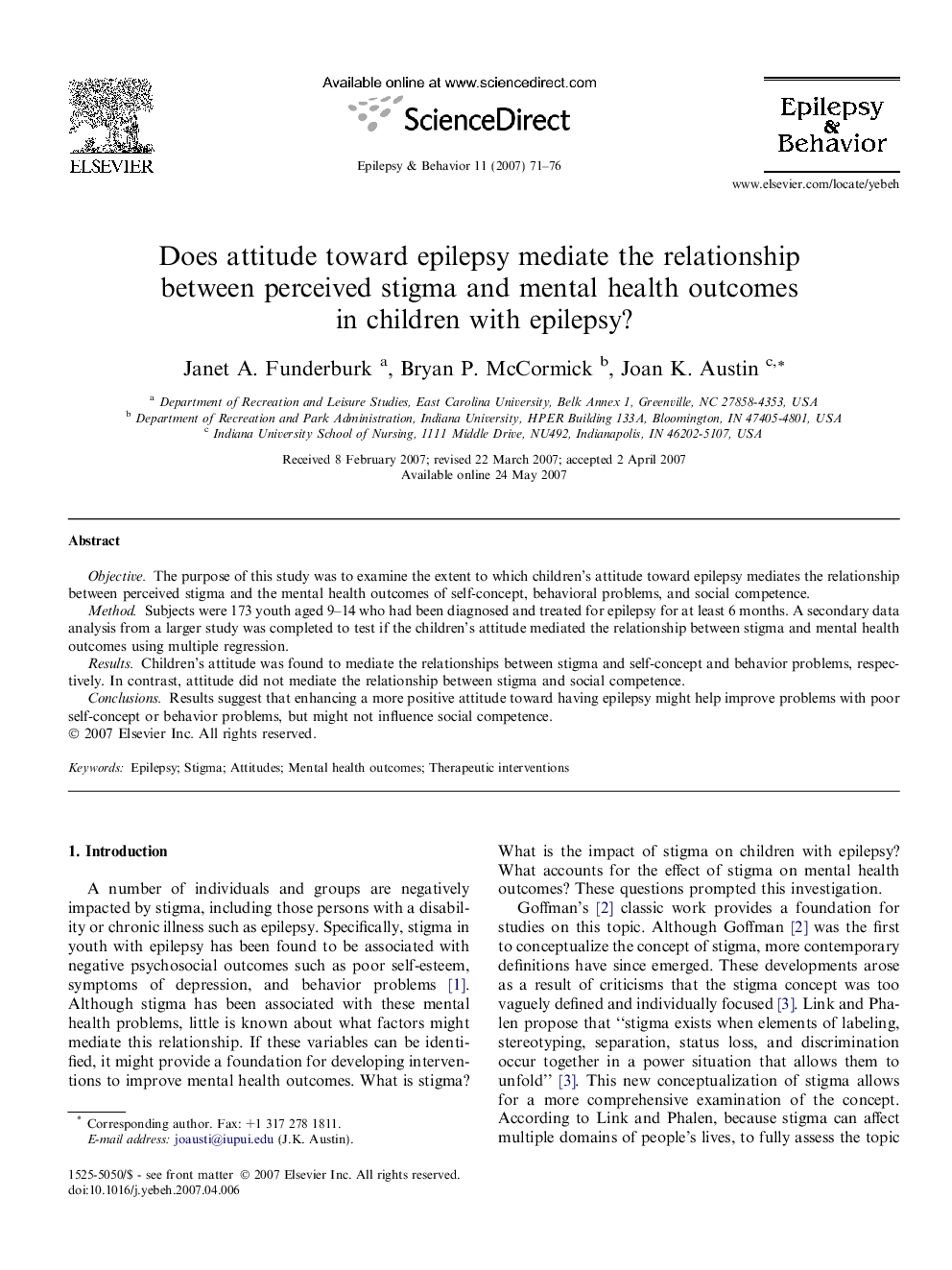| Article ID | Journal | Published Year | Pages | File Type |
|---|---|---|---|---|
| 3050908 | Epilepsy & Behavior | 2007 | 6 Pages |
ObjectiveThe purpose of this study was to examine the extent to which children’s attitude toward epilepsy mediates the relationship between perceived stigma and the mental health outcomes of self-concept, behavioral problems, and social competence.MethodSubjects were 173 youth aged 9–14 who had been diagnosed and treated for epilepsy for at least 6 months. A secondary data analysis from a larger study was completed to test if the children’s attitude mediated the relationship between stigma and mental health outcomes using multiple regression.ResultsChildren’s attitude was found to mediate the relationships between stigma and self-concept and behavior problems, respectively. In contrast, attitude did not mediate the relationship between stigma and social competence.ConclusionsResults suggest that enhancing a more positive attitude toward having epilepsy might help improve problems with poor self-concept or behavior problems, but might not influence social competence.
